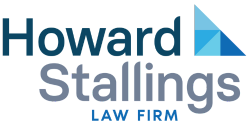The Business Judgment Rule

Directors have a legal obligation to act in their stockholders’ best interest and to base their business-related decisions on a reasonable rationale. However, even those who are careful to fulfill their obligations could face accusations of breaching their fiduciary duty through a wrongful action. These directors are said to have violated the business judgment rule and can be held personally liable for their actions. If you were recently accused of breaching your fiduciary duty as a company’s officer or director, it is important to contact an experienced business law and transactions lawyer who can explain your legal options and ensure that your rights and interests are protected.
What is the Business Judgment Rule?
In North Carolina, corporate officers and directors are required to fulfill what is referred to as their fiduciary duty when involved in business undertakings. This means that directors are obligated to:
- Exercise good faith, or have a loyal state of mind when making operating decisions or monitoring corporate functions;
- Exercise the care that an ordinarily prudent person would use in similar circumstances; and
- Act in a manner that is in the best interests of the company.
Generally, courts presume that directors and officers act with due care, on an informed basis, and with a good faith belief that their actions are in the best interests of their business. Known as the business judgment rule, this presumption protects corporate officers and directors from being held personally liable for decisions that resulted in financial losses.
Overcoming the Business Judgment Rule
The presumption that directors and officers act in good faith is not absolute and can be overcome by demonstrating that the officer or director in question:
- Did not make use of all material and reasonably available information, meaning that he/she did not act on an informed basis;
- Acted in bad faith, disloyally, or with a conflict of interest; or
- Did not believe that he or she was acting in the company’s best interests.
The business judgment rule is based on a gross negligence standard, which means that plaintiffs are required to provide proof of more than just mere negligence in order to file a successful claim. Using this standard ensures that directors and officers are not second-guessed every time they make an unpopular decision, as long as their actions are the product of a rational process. Decisions that were wrong or illogical do not rise to this standard. For instance, one of the most common examples of an action that is unprotected by the business judgment rule standard is when a director engages in self-dealing or does business with him or herself in an individual capacity. This includes actions like selling stocks or assets to oneself at an unreasonably low price or making an advantageous deal with another business owned by the director on the company’s behalf.
Precautionary Measures
To avoid allegations of a failure to fulfill one’s fiduciary duties, corporate officers should take great care to:
- Follow the practices that are generally accepted in their industry;
- Conform to generally recognized standards of conduct; and
- Collect and review relevant information before making a business-related decision.
When it comes to decision making, directors are allowed to rely on information, reports, statements, opinions, financial data, and financial statements, as long as:
- They reasonably believe that the information is reliable;
- The information was presented by accountants, attorneys, or others with expert competence; or
- The information was obtained from a board’s committee or subcommittee.
Compliance with these duties should be documented in the company’s records, as rushed decision making and careless record keeping can result in the imposition of personal liability.
Shareholder Derivative Claims
If a corporation breaches its fiduciary duty, the wronged shareholders have the option of filing what is referred to as a shareholder derivative claim, or a lawsuit on behalf of the company against a director or officer. The business judgment rule can be raised as a defense to these types of suits. If, however, the business judgment rule is overcome and the plaintiff is successful, he or she can recover monetary compensation, although all proceeds will go to the corporation and not the shareholder.
Contact Our Experienced Legal Team
If you have questions about North Carolina business law or the business judgment rule in particular, please contact one of the experienced business law and transactions attorneys at Howard, Stallings, From, Atkins, Angell & Davis, P.A. today for help with your concerns. You can reach us at our office by calling 919-821-7700 or by completing one of our online contact forms.





